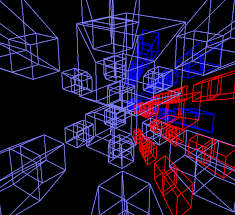
I find it amusing that institutions with a narrower focus often unwillingly isolate themselves in the process. Over the last two years, KAIST seemingly has been opening up. The sheer diversity of out-of-school speakers that are invited to deliver lectures is extraordinary for a technical school far from any bustling city. However, even though the institution is evolving itself, its "inhabitants" have yet to catch up in a similar way. What is commonly considered important to develop as an individual — diverse interactions and experiences — is far from what I see us focusing on. One of the common stress factors that we get stuck on is competition, based on relative grading. While it is an appropriate concern and the goal to surpass others is respectable, it prevails in our minds so much that it affects our out-of-class lives.
Perhaps the most evident challenge at KAIST is meeting new people. Not only is the idea of sparking a sudden conversation uncommon, it is perceived as almost disturbing. Funnily enough, you probably have a higher chance of estimating — and are more interested in knowing — a classmate's GPA than their personal strengths and weaknesses. If you were to, say, start a conversation with a random classmate (what a ridiculous idea), you would most probably learn that they are good at something you are not and vice versa. They would have a skill to fill a void that you have, and at the same time have a void to fill that you simply do not have. In a real-life class setting, you could become a bit anxious if we found out that their strength is in the subject in question, since you would anticipate strong competition from that person. At times, this could develop a wariness and even a slight dislike toward them, which might be reasonable considering the circumstances. But from a broader view, grades are an important and a convenient metric for corporations — not for us. Transferring the same mentality to life in general would be just ridiculous. Unless you learn your own strengths and acknowledge your weaknesses, unless you build your "character" on the one competitive edge you have over others knowing that others are better than you at something else, you will continue to feel anxious around others out of fear of competition.
What does speaking to other people have to do with building confidence? For me, conversations are incredibly important because as I get to know another person, I realize there is an entirely different world that I am unaware of. If we find commonalities, that means our worlds overlap in some single dimension out of thousands. Between us KAISTians, multiple dimensions are bound to overlap. And because we are unlikely to be able to perceive more than three at the same time, we feel like we are essentially the same; we therefore begin to compete with each other and feel discomfort in our own shoes. We need to realize that KAIST as an institution is made for us to develop not only in the educational and professional dimensions. One of my hopes for the future is that the community formed here will let us grow as individuals. I encourage you to limit your academic life to occupy only one of the three dimensions that we can perceive. The second should perhaps be filled by your biggest unique strength on which you can lean on to give you a feeling of self-esteem and therefore motivation to continue, while the last slot should be your weakness that keeps your ego in check and your interactions meaningful.
Coming back to the idea of KAIST opening up as an otherwise isolated institution, one factual reason why that is the case is the global university ranking. Universities are not just ranked on an academic scale, they are ranked by diversity too. The metric seems foolish since it is basically about who has a bigger number of countries represented on campus, but then why are top-ranking universities ahead? Diversity affects ideas generated by an entity. The more ideas, the higher the chance of one of them propelling progress. But this isn’t without exception. Diverse ideas will never grow to become reality in an environment that is not open to accept or even consider them. Funnily enough, this more corporate example immediately makes sense as we are trained on thinking about progress in this context predominantly, and it may be difficult to imagine the concept in a different context. However, it is essentially the same as the n-dimensional nature of life. What causes us to be anxious, scared, hesitant, sad, or feel misfortuned is the thought that we are just like everyone else with nothing to set us apart and guarantee an equally bright future.
Expand your perception and discover the n-dimensional world that is your life.

